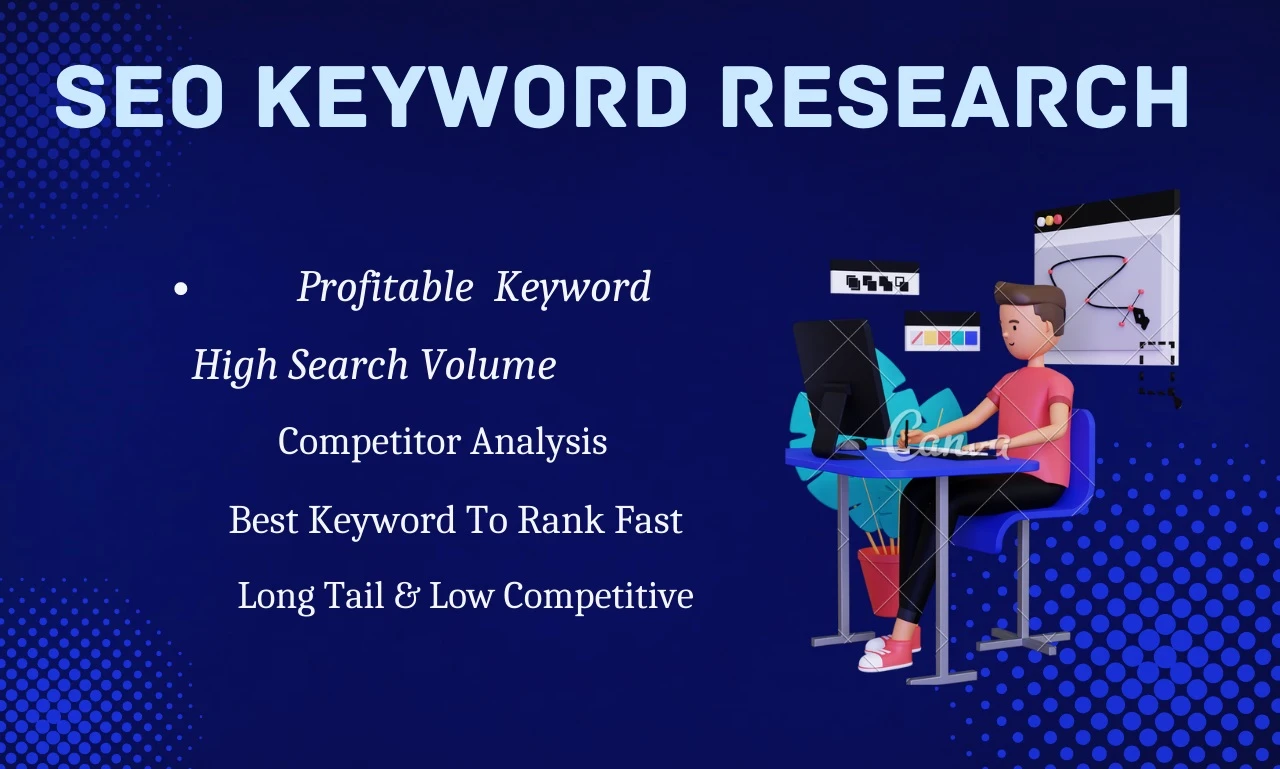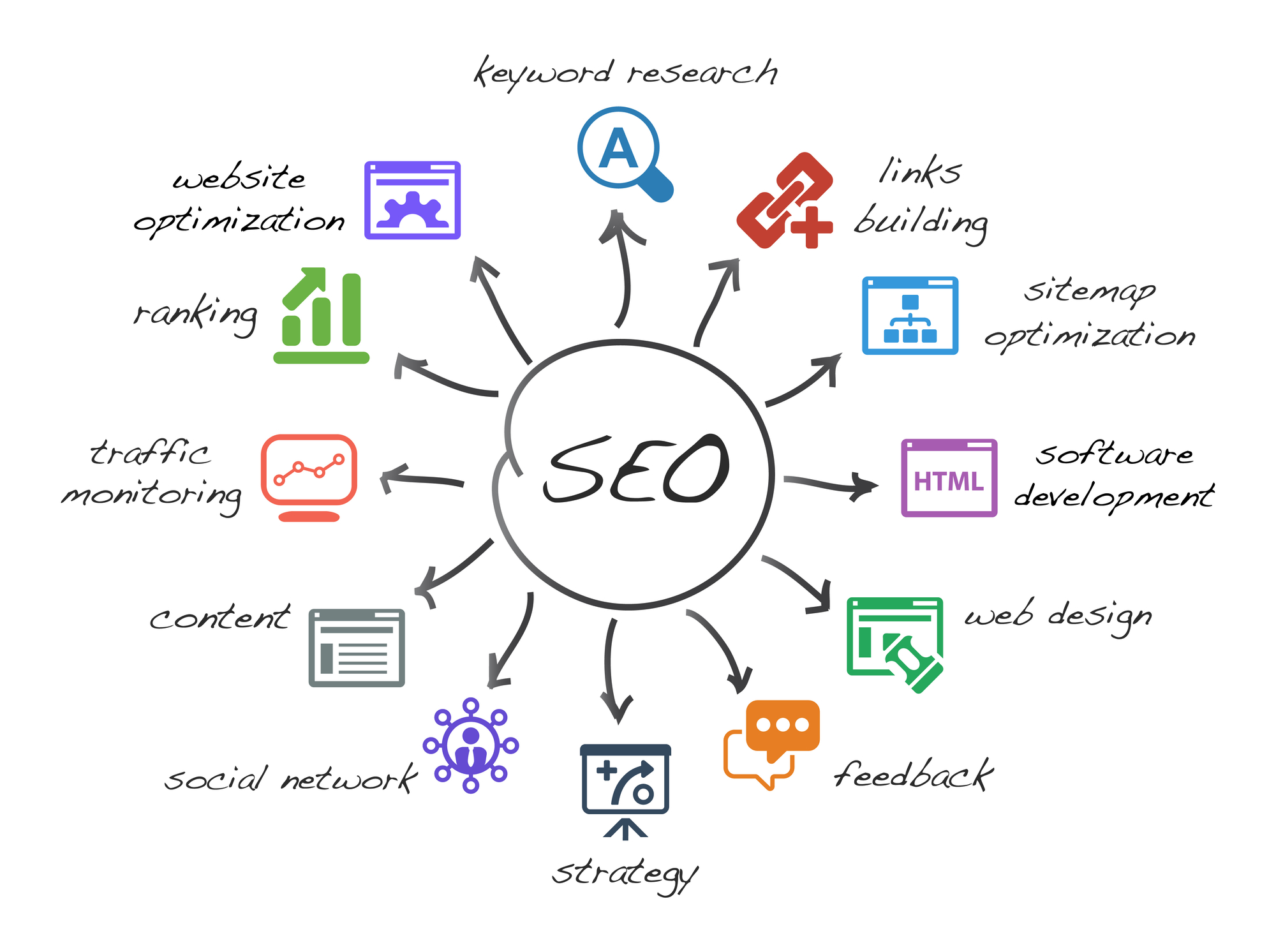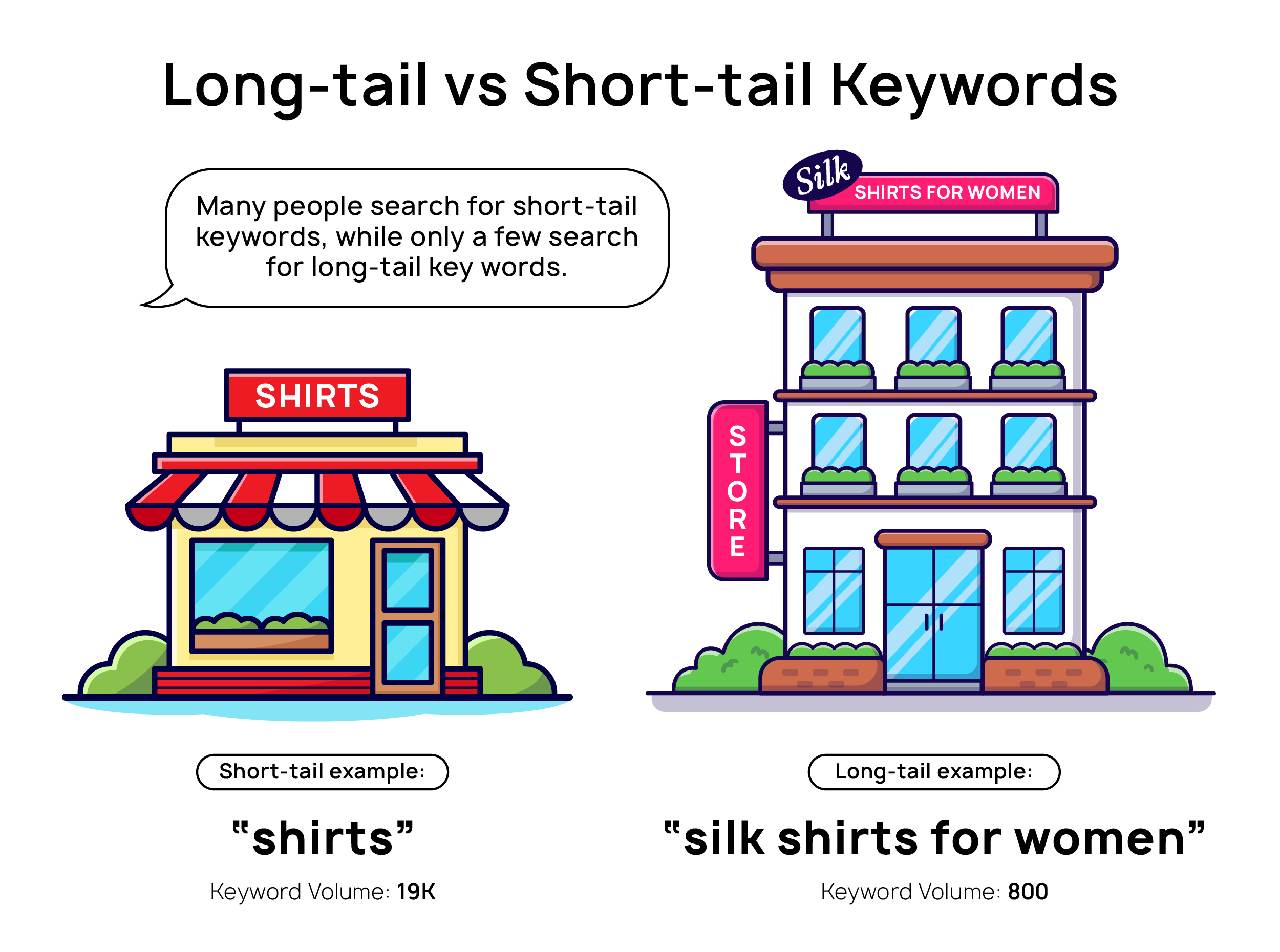
Are you seeking to revolutionize your The Best Keywords To Targetonline presence and drive unparalleled success in the digital sphere? Look no further! Our comprehensive guide on digital marketing strategies unveils the keys to dominating the digital landscape. From cutting-edge SEOtactics that skyrocket your website's visibility to engaging social mediacampaigns that captivate your audience, we've curated a powerhouse of insights to elevate your online brand.
Delve into the world of data-driven marketing, where precision meets creativity. Discover the art of crafting compelling contentthat resonates with your target audience while harnessing the potential of paid advertising to amplify your reach. Unravel the secrets behind successful email marketingand learn how toleverage analytics to fine-tune your strategies for maximum impact.
9 SEO Hacks For The Best Keywords To Target
1. Use keywords in your website's title tagsand meta descriptions-This is one of the most important things you can do to improve your website's SEO. Make sure your title tags and meta descriptionsare clear, concise, and include your target keywords.
2. Use keywords throughout your website's content -This includes your website's pages, blog posts, and social media posts. Make sure your keywords are used naturally and don't make your content sound forced or unnatural.
3. Build backlinksto your website -Backlinks are links from other websites to your website. The more backlinks you have, the higher your website will rank in search engines.
4. Use social media to promote your website -Share your website's content on social media and encourage your followers to share it as well. This will help to drive traffic to your website and improve your SEO.
5. Use Google Search Consoleto track your website's performance -Google Search Console is a free tool that allows you to track your website's traffic and see how your keywords are performing.
6. Use Google Keyword Planner to find keywords -Google Keyword Planner is a free tool that allows you to find keywords that are relevant to your website and have a good search volume.
7. Use long-tail keywords -Long-tail keywords are more specific than short-tail keywords, which means they are less competitive and easier to rank for.
8. Use negative keywords -Negative keywords are words that you don't want your website to rank for. This can help to improve your website's relevancy and prevent your website from showing up in search results for irrelevant keywords.
9. Use LSI (Latent Semantic Indexing) keywords -LSI keywords are words that are related to your target keywords. Using LSI keywords can help to improve your website's relevancy and make it easier for search engines to understand what your website is about.
Importance Of SEO In Digital Marketing
Search Engine Optimization (SEO)is a crucial aspect of digital marketing, as it helps businesses achieve higher visibility in search engineresults pages (SERPs). By optimizing their websites and content for relevant keywords, businesses can attract more organic traffic, which can lead to increased conversions, brand awareness, and revenue.
Here Are Some Of The Key Benefits Of SEO In Digital Marketing
1. Improved user experience-SEO practices can also improve the overall user experience of your website, making it easier for visitors to find what they are looking for. This can lead to increased engagement and satisfaction, which can further boost your SEO ranking.
2. Targeted traffic -SEO helps to attract targeted traffic to your website, meaning that the visitors are more likely to be interested in what you have to offer. This can lead to higher conversion rates and sales.
3. Higher return on investment (ROI) -SEO is a relatively cost-effective marketing strategy, as it does not require businesses to pay for each click on their website. This makes it a more sustainable and long-term investment compared to paid advertising methods.
4. Improved brand awareness -By appearing high in SERPs, businesses can enhance their brand awareness and credibility. This can help to build trust with potential customers and make them more likely to choose your products or services over those of your competitors.
5. Increased organic traffic -When a website ranks higher in search results, it is more likely to be seen by potential customers, leading to more organic traffic. This is particularly important for businesses that rely on online sales or leads.
Here Are Some Of The Most Common SEO Techniques:
- Social media marketing-Promoting your website and content on social media platforms to drive traffic and engagement.
- Content marketing-Creating high-quality, informative, and engaging content that is relevant to your target audience.
- Link building-Building backlinks from high-quality websites to your own to increase your website's authority and credibility.
- Technical SEO-Ensuring that your website is technically sound and easy for search engines to crawl and index.
- On-page optimization -Optimizing your website's content, title tags, meta descriptions, and other elements to make them more relevant to your target keywords.
- Keyword research -Finding relevant keywords that potential customers are using to search for products or services related to your business.
SEO is an ongoing process that requires continuous effort and refinement. By staying up-to-date with the latest SEO trends and best practices, businesses can continue to improve their visibility and achieve their digital marketing goals.
Keyword Research And Analysis
Keyword researchand analysis is the process of identifying and evaluating keywords that are relevant to a website or business. It is a crucial step in search engine optimization(SEO), as it helps to ensure that a website is targeting the right keywords to attract organic traffic.
Here Are The Steps Involved In Keyword Research And Analysis:
- Monitor your keyword rankings over time -Use a tool like Google Search Console to track your keyword rankings and see how your efforts are paying off.
- Use your keywords throughout your website -This includes your website's title tags, meta descriptions, headings, and body content.
- Analyze the search intentfor each keyword -Search intentrefers to the user's goal when they search for a particular keyword. There are four main types of search intent: informational, navigational, transactional, and commercial.
- Choose a mix of high-volume, low-competition keywords -This will help you to attract a mix of qualified and competitive traffic.
- Evaluate the search volume and competition for each keyword -Search volume is the average number of times a keyword is searched for per month. Competition refers to how difficult it is to rank for a keyword.
- Use keyword research tools to identify related keywords -There are many free and paid keyword research tools available, such as Google Keyword Planner, SEMrush, and Ahrefs.
- Brainstorm a list of seed keywords -These are the general keywords that describe your product, service, or industry.
Here Are Some Of The Benefits Of Keyword Research And Analysis:
- Improved user experience -Keyword research and analysis can help you to create content that is more relevant to your target audience, which can lead to a better user experience.
- Enhanced brand awareness -Appearing high in search results can help to increase brand awareness and credibility.
- Improved conversion rates -Targeting keywords with high search intent can help you to attract visitors who are more likely to convert into customers.
- Increased organic traffic -By targeting the right keywords, you can attract more visitors to your website from search engines.
Here Are Some Tips For Conducting Effective Keyword Research And Analysis:
- Monitor your results and make adjustments as needed -Keyword research and analysis is an ongoing process, so it's important to monitor your results and make adjustments as needed.
- Don't be afraid to experiment -Try different keywords and see what works best for your website.
- Pay attention to search intent -Make sure you are targeting keywords with the right search intent for your website.
- Use a variety of keyword research tools -No single tool is perfect, so it's important to use a variety of sources to get a complete picture.
- Put yourself in the shoes of your target audience -What are they searching for? What questions are they asking?
Long Tail Vs Short Tail Keywords
Short-tail and long-tail keywords are two types of keywords used in search engine optimization (SEO). They differ in their length, specificity, and competition level.
1. Short-tail keywords -are broad, generic terms that are typically only one or two words long. Examples of short-tail keywords include "shoes," "travel," and "computer." These keywords are often very competitive, as there are many businesses and websites trying to rank for them.
2. Long-tail keywords -are more specific and detailed than short-tail keywords. They typically consist of three or more words and are often more closely related to the intent of the searcher. Examples of long-tail keywords include "running shoes for women," "affordable travel destinations in Europe," and "best laptop for graphic design." These keywords are generally less competitive than short-tail keywords, as there are fewer businesses and websites targeting them.
In general, short-tail keywords are better for generating brand awareness and driving traffic to your website, while long-tail keywords are better for generating leads and conversions.
Here are some tips for using short-tail and long-tail keywords effectively in your SEO strategy:
- Use a mix of short-tail and long-tail keywords. This will help you to attract a mix of qualified and competitive traffic.
- Target long-tail keywords that are relevant to your target audience and your business goals.
- Use long-tail keywords in your website's content, title tags, and meta descriptions.
- Build backlinks to your website from high-quality websites.
- Monitor your keyword rankings and make adjustments as needed.
Measuring And Improving SEO Performance
Measuring and improving SEO performance is crucial for any business that wants to succeed online. By tracking key metrics and implementing effective strategies, you can ensure that your website is visible to potential customers and that you're attracting the right kind of traffic.
Here Are Some Key Metrics To Track For SEO Performance:
- Conversion rate -This is the percentage of visitors who take a desired action on your website, such as making a purchase or filling out a form.
- Bounce rate -This is the percentage of visitors who leave your website after viewing only one page.
- Click-through rate (CTR) -This is the percentage of people who click on your website in SERPs.
- Keyword rankings -This is how high your website ranks for specific keywords in search engine results pages (SERPs).
- Organic traffic -This is the number of visitors that come to your website from search engines organically (without clicking on ads).
By tracking these metrics regularly, you can identify areas where your SEO performance can be improved. For example, if your organic traffic is low, you may need to improve your keyword rankings. If your CTR is low, you may need to improve your website's title tags and meta descriptions. And if your bounce rate is high, you may need to improve your website's content and user experience.
Frequently Asked Questions About The Best Keywords To Target
What Are The Best Keywords To Use?
Mix head terms and long-tail keywords when choosing keywords. Head terms are short, competitive, high-volume keywords like “sound design.” They're hard to rank for, but it doesn't hurt to target them anyway as long as you also include long-tail keywords. Long-tails are what will really bring your site traffic.
What Are Target Market Key Words?
Target keywords are specific phrases people use when searching for information. Typically, they are phrases about your business rather than individual brand keywords. For example, “Semrush” is a brand keyword. But “competitor analysis tools” is a relevant target keyword for Semrush.
What Is The Best Keyword Strategy?
Your keyword strategy should involve selecting high-performing keywords that drive relevant traffic to your business. Choosing the right keywords for advertising can make all the difference in your campaigns, determining how well your advertisements rank on Google and other search engine platforms.
Conclusion
In the ever-evolving landscape of digital marketing, mastering the art of targeting the best keywords remains an indispensable pillar of success. As this comprehensive guide concludes, understanding the nuances of keyword research, optimization, and implementation plays a pivotal role in driving organic traffic, enhancing brand visibility, and ultimately achieving business objectives.
However, the journey doesn't end with keyword selection alone. Continual adaptation to search engine algorithms, staying abreast of emerging trends, and refining optimization techniques are essential for sustaining and advancing your digital presence. Embracing a holistic approach that combines engaging content creation, technical proficiency, and a user-centric mindset will fortify your position amidst the competitive digital landscape.


